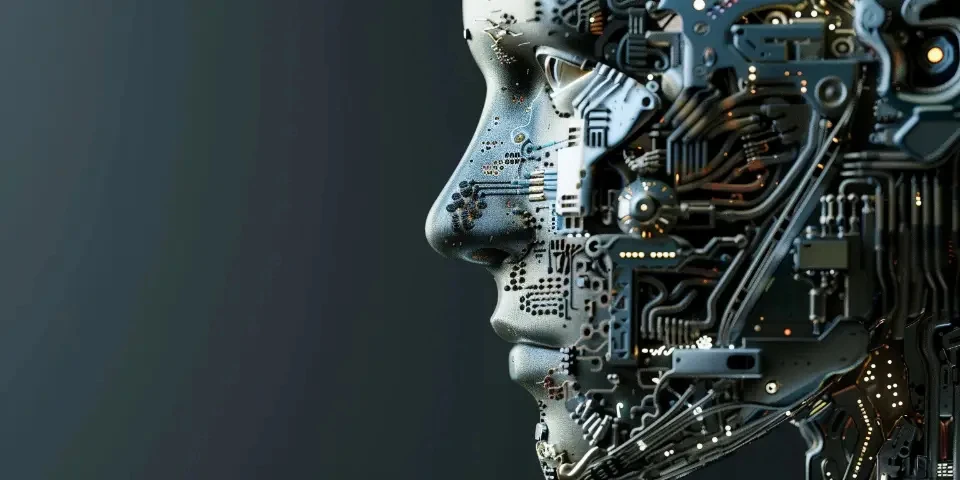Breaking the Stigma AI Chatbots as Emotional Support Allies
Emotional support has never been more important than it is today, considering the rising rates of anxiety, stress, and mental health issues. Artificial Intelligence (AI) chatbots have emerged as powerful tools in breaking the stigma surrounding seeking emotional support. These chatbots, equipped with advanced algorithms and natural language processing capabilities, provide a safe and accessible platform for individuals to express their emotions, seek advice, and find solace. In this article, we will explore the various aspects of AI chatbots as emotional support allies, and how they are reshaping the way we perceive mental health care.
1. Empathy and Understanding
One of the key strengths of AI chatbots is their ability to provide empathetic responses. Through analyzing vast amounts of data and using sophisticated algorithms, these chatbots can simulate human emotions and offer understanding to individuals in need. By comprehending the context and tone of the conversation, AI chatbots can tailor their responses to match the emotional state of the user, providing a sense of comfort and validation.

2. 24/7 Availability
AI chatbots are available round-the-clock, ensuring that emotional support is accessible anytime, anywhere. Unlike traditional therapy, which often requires scheduling appointments and wait times, AI chatbots provide immediate responses, eliminating the barriers of time and distance. This constant availability allows individuals to seek support in real-time, even during moments of crisis or when they simply need someone to listen.
3. Anonymity and Confidentiality
Many individuals hesitate to seek emotional support due to the fear of judgment or breach of confidentiality. AI chatbots offer a safe space for individuals to express their emotions without any fear of stigma or exposure. The anonymity provided by these chatbots allows users to share their deepest struggles openly, which can be liberating and therapeutic. The data shared with AI chatbots is often securely encrypted, ensuring confidentiality and privacy.
4. Personalized Support
AI chatbots are designed to learn and adapt to each user's individual needs and preferences. They can provide personalized recommendations, coping strategies, and resources based on the user's specific challenges. By continuously analyzing user interactions, AI chatbots can offer tailored support that caters to the unique circumstances of each individual, enhancing the effectiveness of the emotional support provided.
5. Multilingual and Cultural Sensitivity
AI chatbots have the ability to communicate in multiple languages, making emotional support accessible to a wide range of individuals across different cultures and regions. These chatbots can also be programmed to be culturally sensitive, ensuring that the support they provide aligns with the values and beliefs of the users. This inclusivity helps break down barriers and reach individuals who may have otherwise struggled to find emotional support.
6. Supplementing Professional Therapy
AI chatbots are not intended to replace professional therapy, but rather to supplement it. They can act as a bridge, offering immediate support and coping mechanisms while individuals wait for therapy sessions or providing ongoing support in conjunction with therapy. The integration of AI chatbots into therapy can improve the overall mental health care experience, enabling individuals to access support more frequently and reinforcing the strategies discussed during therapy sessions.
7. Gamification and Interactive Features
Some AI chatbots incorporate gamification elements and interactive features to engage users in a more enjoyable and interactive way. Through gamified activities, such as mood tracking, goal setting, and guided exercises, these chatbots make the emotional support process more engaging and boost user motivation. By transforming emotional support into a game-like experience, individuals may find it easier to develop healthy habits and actively participate in their own well-being.
Frequently Asked Questions
Q: Are AI chatbots as effective as human therapists in providing emotional support?
A: While AI chatbots can provide valuable emotional support, they are not a replacement for human therapists. AI chatbots can offer immediate responses and coping strategies, but they lack the deep understanding, empathy, and personalized guidance that human therapists provide.
Q: How secure is the data shared with AI chatbots?
A: Developers of AI chatbots prioritize data security and employ encryption techniques to ensure the confidentiality and privacy of user data. However, it's important to review the privacy policy of any chatbot or platform before sharing personal information.
Q: Can AI chatbots detect individuals at risk of self-harm or suicide?
A: Some AI chatbots are designed to identify signs of distress or potential self-harm. They utilize machine learning algorithms to analyze user responses and provide appropriate interventions, including directing individuals to helpline numbers or emergency services when necessary. However, their accuracy may vary, and it's crucial to reach out to professional help in such situations.
References
[Reference 1]
[Reference 2]
[Reference 3]
Explore your companion in WeMate